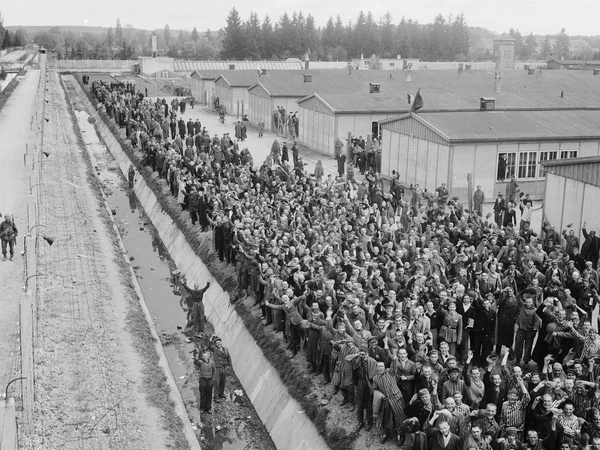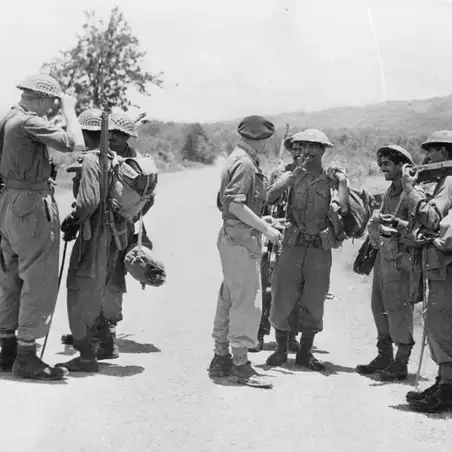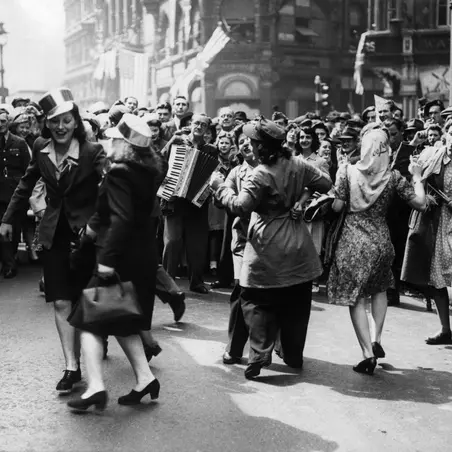The consequences of WW2 would be felt across nations, societies and communities across the world, none more so than the massive social changes it unleashes.
The most destructive war in history WW2 was a massive driver of not only social but also technological, political and economic change. While today we see the massive societal changes bought about by Covid-19 for example in how we work, communicate, travel and feed ourselves, WW2 would have an effect on every aspect of life.
New families were created as women married servicemen of other nations and moved overseas; children were born in fatherless homes as a result of demobilised troops leaving the UK to return to the US or Canada or due to a death as a result of the war; and the divorce rate spiked as many families struggled to re-adjust to a world at peace.
Many were looking for new nations. Commonwealth troops emigrated to Britain; Jewish survivors of the Holocaust looked east and west for a new home; Polish soldiers made Britain their permanent home; and new social policies were to change nations across the world.
Close to 3 million US troops passed through Britain during the war, along with nearly 500,000 Canadians.
Pauline Natividad’s father was a US Army medic who left Britain before she was born to embark on the D-Day landings.
It wasn’t until she was 44 that she finally tracked him down and went to America to meet him.
"There were some little children holding up a sign ‘Welcome Pauline, we love you!’.
"I scanned the group and spotted my Daddy Paul.
I absolutely knew it was him and rushed across and just hugged him!
In the UK and other Commonwealth nations, post-war elections paved the way for incoming governments that radically altered social policies.
The 1946 New Towns Act established corporations to build new towns.
Stevenage in Essex was the first, followed by 12 others by 1950.
In 1947 the British Government instituted the Polish Resettlement Program which gave rights of employment, benefits and residence to Polish ex-servicemen.
Jan Walenty Walis was a Polish officer who decided to stay.
I was strongly advised by my superiors against returning to Poland.
"In these circumstances my decision was clearly made.
"To stay in Great Britain meant Scotland, where I decided in my heart to stay."
In Europe thousands of Jewish refugees were searching for a new home.
After returning to his hometown to wait for his family he found the whole area had been ransacked, and what was left had been appropriated by his old neighbours.
My hometown was completely destroyed.
"I came home and I noticed there was a woman in our garden, and I said ‘what are you doing here? This is our garden’.
The woman simply replied "But I thought they killed you all. What are you doing here?"
Motya moved on to Paris in France before setting sail to Canada where he settled in Toronto, married and had two children.


.jpg?sfvrsn=ba331f40_0&method=CropCropArguments&width=600&height=450&Signature=21D638F8C9729C60A132AB16B8661272D4C996E6)
-l-55643).jpg?sfvrsn=df3be5f5_0&method=CropCropArguments&width=600&height=450&Signature=8BD95A2D0BC7CA798B09EFE4525E6059F80CB707)



.jpg?sfvrsn=a011a3c8_2&method=CropCropArguments&width=452&height=452&Signature=0F20C09C5217E75F885E712BA65C8227FACA66F2)
.jpg?sfvrsn=e0967d6a_2&method=CropCropArguments&width=452&height=452&Signature=FE7710B6D950C691777CE55003B2C491AB5CBD47)